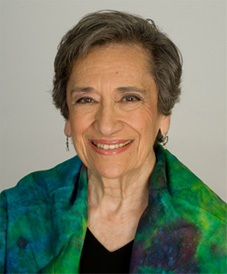 Last week I attended a poignant memorial tribute ceremony in honor of Dr. Phyllis Silverman, hosted by her colleagues at the Brandeis Women’s Studies Research Center. A prominent researcher in the field of bereavement, Phyllis was also the co-founder of The Children’s Room.
Last week I attended a poignant memorial tribute ceremony in honor of Dr. Phyllis Silverman, hosted by her colleagues at the Brandeis Women’s Studies Research Center. A prominent researcher in the field of bereavement, Phyllis was also the co-founder of The Children’s Room.
Her research was vast, so there is no doubt about the reach and impact that she has had professionally among colleagues but what many of the storytellers in the room had to share was the effect that her teachings have had on them personally.
Phyllis believed that there is no set path or predictable stages of grief. Each individual’s experience is highly personal and shouldn’t be judged by other people’s expectations.
Death ends a life but not a relationship. Phyllis taught that you don’t need to let go or detach from a person who has died in order to heal. On the contrary, she spoke of the importance of “continuing bonds” – preserving the connection to the loved one and their legacy through stories and other means.
There is a lot of value in peer-to-peer connections when grieving. We have worked on videos for The Children’s Room for years, and every time we hear the stories of children and parents who have lost loved ones, they speak about the importance of participating in The Children’s Rooms’ activities and being able to connect with other mourners. They feel less alone and stigmatized being with a group of peers who understand their struggles with coping, and they gather strength from each other.
I regret that I never had the chance to meet Phyllis in person. From what I heard last week, it sounded like she was quite the force of nature, and she channeled her amazing energy and intelligence to changing how people perceive death and grieving. I hope Phyllis understands the power of her legacy in The Children’s Room and that the organization thrives for many years to come.